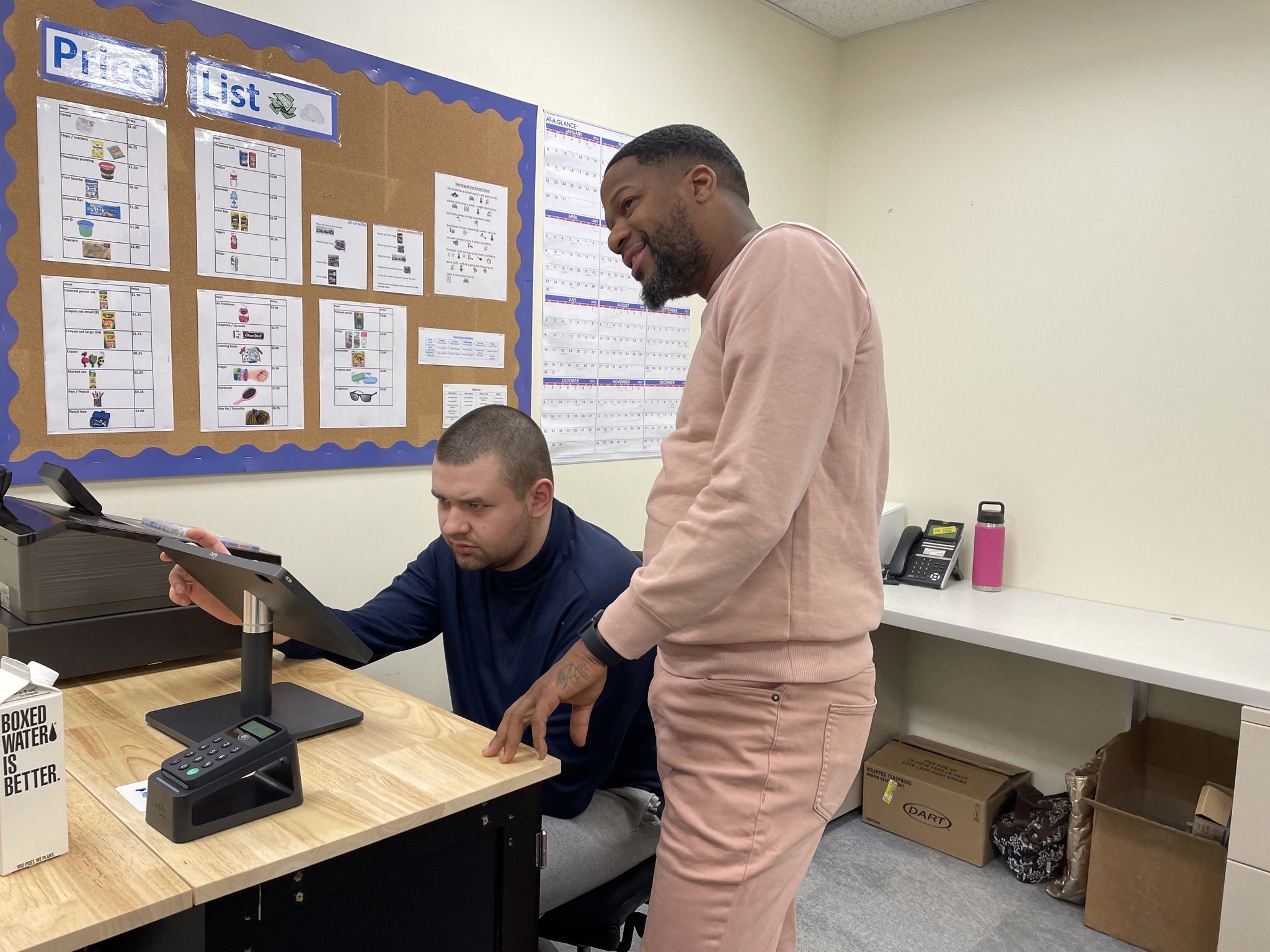Helping students develop vocational skills
The Guild’s Vocational Services program seeks to help all students reach their highest and most independent level of vocational skill development. The Guild personalizes the vocational goals, objectives and experiences to the interests and skills of each student, based on shared student vision and input from parents and team members. Vocational training opportunities are planned and implemented by Employment Services staff members who serve as job developers and job coaches.
-
Pre-vocational services
Pre-vocational experiences build a foundation of necessary skills and knowledge that will open up vocational options for a student’s future and develop skills that are integral to everyday life. By the age of 14, pre-vocational goals become part of every student’s Individual Education Plan (IEP). Teachers work with students, depending on their IEP goals, on following single-step directions and completing matching, sorting and assembly tasks in an effort to develop generalized skills that can be used across different settings. The goal is to have students learn sound work habits, safety know-how and communication skills that may be applied in future work environments.
-
On-site jobs
The Guild has four designated spaces for Vocational Services activities: the vocational training room, which includes several activity spaces; the loft space for office-related work and hands-on tasks; the Coffee Shop; and the School Store. On-site jobs include:
Delivery – Deliver documents, weekly checks and thank-you grams
Retrieval – Pick up recycling and dishes
Ordering – Take orders for the local café, Coffee Shop and School Store
Kitchen – Work in the dish room, help open the kitchen and serve food
Maintenance – Clean around the school, including organizing, sweeping, mopping and wiping, and clean vehicles
Coffee Shop – Learn register skills, customer-service routines, following written order forms, multi-tasking, delivering items, restocking and taking inventory
School Store – Learn register skills, customer-service routines, following written order forms, multi-tasking, delivering items, setting up and breaking down shop, restocking and taking inventory
Office – Follow checklist to create behavioral aids, complete data entry routines, operate the copy machine and complete collating activities.
Vending machine – Take inventory, fill machine and help manage stock -
Community jobs
Once students master basic vocational skills and work habits, they may work in a community job site with a job coach or at The Guild with maintenance and culinary staff. The Guild’s community-based work sites include the Waverley Oaks Athletic Club in Waltham, Revival Café and Kitchen, New Leaf Cafe in Concord, and Gaining Ground, a non-profit organic farm in Concord.
-
Individual sessions
The Vocational Services staff works with many students on a one-to-one basis, practicing job skills, developing resumes, completing forms and other tasks.
-
Compensation
At the age of 14, students begin getting paid for completed work shifts. Students appreciate being compensated for their work, plus the payment provides the opportunity to teach money skills, banking and budgeting. Students meet regularly with Vocational Service staff members to determine how much money they are making, identify an item or items they may want to buy and travel to the location to purchase it.
-
Safe travel
Because some students will work in community-based jobs after leaving The Guild, teaching safe travel is an important element of vocational training. If appropriate to do so, students may learn to walk to a nearby location for work. Other students will learn about traveling on public transportation – first with staff members, then being shadowed and then possibly independently.


